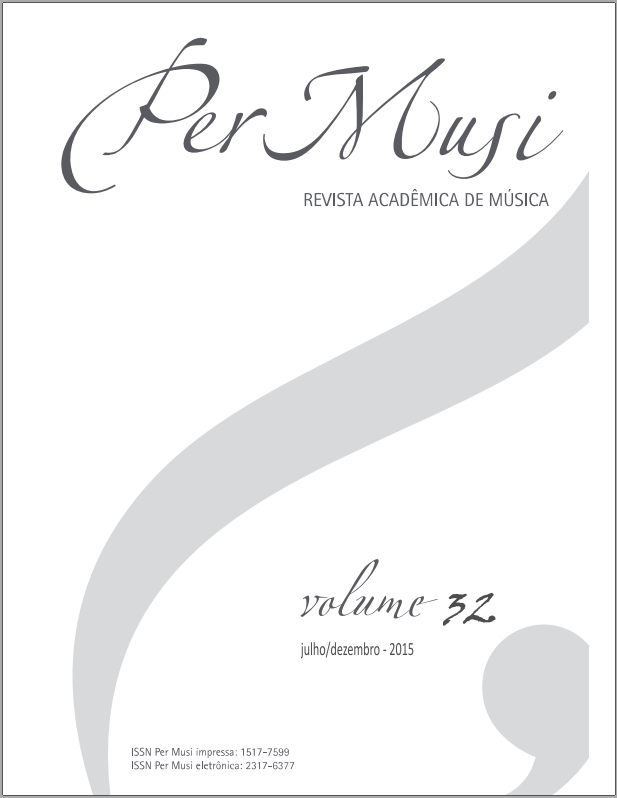Políticas del espectro de John Cage
su obra musical a través de Jacques Derrida
Palabras clave:
Obra política de John Cage; espectro; nativos norteamericanos; justicia; deconstrucción.Resumen
En una aproximación filosófica al trabajo del compositor estadounidense John Cage, se aplican las nociones derrideanas de espectro y fantasma para comprender su concepción del sonido y revelar la condición política de su arte. Esta condición está absolutamente ligada a un deseo de justicia que nace en las raíces de una América devastada por el dominio europeo. Su manifestación, en la obra de Cage, es la intervención y el desarme de la música occidental. De esta manera, el trabajo artístico, según John Cage, está siempre arraigado a un trabajo político cuyo horizonte es la justicia, horizonte que, en efecto, Jacques Derrida ha puesto como condición de todo hacer.
Referencias
ANTIN, D. (2011). john cage sans cage. París : Les presses du réel.
BOCK, J. (2006). "There is Music in Every Sound: Thoreau's Modernist Understanding of Music", COPAS, Vol. 7. En línea, extraído el 27 de agosto 2012 http://copas.uni-regensburg.de/article/viewArticle/85/109
CAGE, J. (1967). A year from Monday. Connecticut: Wesleyan University Press,
CAGE, J. (1973), Silence. Conneticut: Wesleyan University Presse.
CAGE, J.; KOSTELANETZ, R. (2003). Conversing with Cage, New York: Routledge.
CAGE, J. (1970). “Other people think”. In: Kostelanetz, R. John Cage. Documentary Monographs in Modern Art, Connecticut: Praeger.
DACHY, M. (2000) “Introduction”. In : Cage, J. ; Kostelanetz, R. Conversations avec John Cage. París: Edition de Syrtes.
DERRIDA, J. (2005), Force de loi. París : Galilée.
DERRIDA, J. (1972). Marges de la Philosophie. París: Les Editions de Minuit.
DERRIDA, J. (1993). Spectres de Marx. L'état de la dette, le travail du deuil et la nouvelle Internationale. París: Galilée.
DERRIDA, J. (1976), “Fors”. In: Abraham, N.; Torok, M. Cryptonomie. Le Verbier de l’homme aux loups, Aubier: Flammarion.
FETTERMAN, W. (1996). John Cage theatre pieces: notations and performance. Amsterdam: Harwood Academic Publishers.
LEVINE, V. L. (1994). “American Indian musics, past and present”. In: Nichols, D. The Cambridge History of American Music. Cambridge: Cambridge University Press.
SILVERMAN, K. (2010) Begin Again. A biography of John Cage. New York: Knopf.
THOREAU, H. D.; FLECK, R. (2007). Selections from The Indian Notebooks (1847 – 1861) of Henry D. Thoreau. Lincoln: The Thoreau Institute at Walden Woods.
Descargas
Publicado
Número
Sección
Licencia
Derechos de autor 2015 Per Musi

Esta obra está bajo una licencia internacional Creative Commons Atribución 4.0.

Excepto cuando se indique lo contrario, el contenido de este sitio está sujeto a una Licencia Creative Commons - Atribuição 4.0 Internacional.












